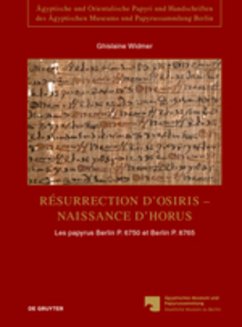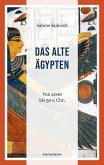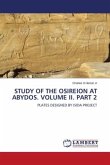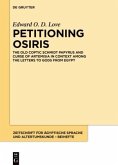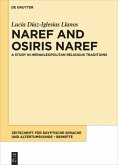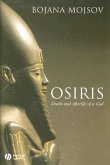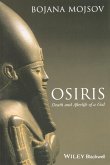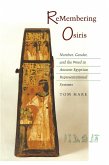First complete edition of two demotic manuscripts from the early Roman period. These papyri, written in the distinctive Soknopaiu Nesos hand (Fayyum), are inscribed with religious texts for which only a few parallels are known. Papyrus Berlin P. 6750 contains 10 fragmentary columns and can be described as a compendium of liturgical texts, including among others glorifications, lamentations, litanies of names and hymnic parts. The first seven columns are centred on Osiris, foremost in the West, with the description of his 'resurrection'; the last three columns, which deploy more recent grammar constructions, are concerned with the birth of Horus-the-son-of-Isis inside the mammisi, and his accession to the throne. Papyrus Berlin P. 8765, in its present state, is made up of two large columns containing litanies of names and it is a close parallel to a section of papyrus Berlin P. 6750.? There is reason to think that the main papyrus was written by a scribe from Soknopaiu Nesos in the 1st century A.D. who both compiled earlier sacerdotal texts and composed new ones, combining traditional themes. This enterprise reflects the surge in creativity that can be witnessed throughout Egypt in the religious sphere during the early Roman period.
Hinweis: Dieser Artikel kann nur an eine deutsche Lieferadresse ausgeliefert werden.
Hinweis: Dieser Artikel kann nur an eine deutsche Lieferadresse ausgeliefert werden.
"[...] die vorliegende sorgfältige und detaillierte Publikation [stellt] einen außerordentlich wichtigen Schritt im Rahmen der Erschließung nicht-funerärer demotischer religiöser Texte sowie generell der ägyptischen religiösen Traditionen der Römerzeit dar[...] und [sollte] deshalb von jedem an Religion interessierten Ägyptologen gelesen werden [...]"
Joachim Friedrich Quack in: olzg-2016-0125, 314-317
"[...] the book has already proven to be useful in scholarly daily routine. Therefore, it may be safe to say that Widmer's book is important and good."
Martin Andreas Stadler in: Bryn Mawr Classical Review 2017.03.36
Joachim Friedrich Quack in: olzg-2016-0125, 314-317
"[...] the book has already proven to be useful in scholarly daily routine. Therefore, it may be safe to say that Widmer's book is important and good."
Martin Andreas Stadler in: Bryn Mawr Classical Review 2017.03.36

